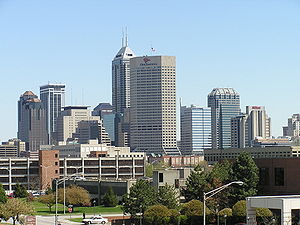 Anyhow, what makes a conference like this so great is that it brings together important people and conversations at various places from various disciplines. In case you don't already know this, academics spend an enormous amount of time all by themselves. Even in a big university, a scholar may be the only person who cares about their particular subject for miles around. So conferences become important for relationships and mutual engagement.
Anyhow, what makes a conference like this so great is that it brings together important people and conversations at various places from various disciplines. In case you don't already know this, academics spend an enormous amount of time all by themselves. Even in a big university, a scholar may be the only person who cares about their particular subject for miles around. So conferences become important for relationships and mutual engagement.For this conference, people are coming from departments of history, sociology, religious studies, and political science, as well as from various teaching backgrounds, including divinity schools, law schools, schools of government, and schools of public policy. In addition, I anticipate this conference to be a bit more "cozy" (in comparison with the thousands at the major annual disciplinary conferences), so I hope to get a chance to make a few new friends while catching up with a few "old" ones.
The schedule is below - gives you a taste of what's up. All of these people have published interesting, important work in American religion. Worth looking up a few names.
Thursday, June 4
3:00-7:00 p.m. Registration
6:00-7:30 p.m. Reception, Severin Ballroom
Friday, June 5
9:15-11:15
How did we get here? A discussion of disciplinary lines, how we in American religious studies are divided into groups and subgroups, the forces that keep us separated or encourage interdisciplinarity, the role of funding in all of this.
Welcome: Philip Goff, Center for the Study of Religion and American Culture and Department of Religious Studies, IUPUI
Host: Stephen Stein, Department of Religious Studies, Indiana University-Bloomington
Panel: Jon Butler, American Studies, History, and Religious Studies, Yale University; Jay Demerath, Department of Sociology, University of Massachusetts, Amherst; Paula Kane, Department of Religious Studies, University of Pittsburgh

Host: Peter Thuesen, Center for the Study of Religion and American Culture and Department of Religious Studies, IUPUI
Panel: John Corrigan, Department of Religious Studies, Florida State University; Dennis Dickerson, Department of History, Vanderbilt University; Robert Orsi, Department of Religious Studies, Northwestern University
3:30-5:15
Competing and complementary approaches in social scientific studies of religion in America. Are the important divisions less those between social scientists and humanists and instead those that divide social scientists into quantitative and qualitative? What role do non-sociological social sciences play in the larger picture?
Host: Arthur E. Farnsley II, Society for the Scientific Study of Religion and the Center for the Study of Religion and American Culture, IUPUI
Panel: Penny Edgell, Department of Sociology, University of Minnesota; Rhys Williams, Department of Sociology, University of Cincinnati; Jerry Park, Department of Sociology, Baylor University
Saturday, June 6
8:30-10:00
Explaining Religion in America: What can we learn from each other? What can those working in the humanities learn from social scientists, and vice-versa? How do we view one another? What do we consider the other to be doing right and wrong?
Host: Brian Steensland, Department of Sociology, Indiana University-Bloomington
Panel: Courtney Bender, Department of Religion, Columbia University; Carol B. Duncan, Department of Religion and Culture, Wilfrid Laurier University; David Hall, Harvard Divinity School
10:30-12:15
Politics, Secularization, and the Public Square
Host: Sheila Suess Kennedy, School of Public and Environmental Affairs, IUPUI
Panel: Daniel Walker Howe, Department of History, UCLA and Oxford University; Winnifred Fallers Sullivan, University at Buffalo Law School; and Mark Silk, Department of Religion, Trinity College
2:00-3:45
Race, Ethnicity, and Religious Pluralism
Host: Edward Curtis IV, Department of Religious Studies, IUPUI
Panel: Helen Rose Ebaugh, Department of Sociology, University of Houston; Rudy Busto, Department of Religious Studies, UCSB; David Wills, Department of History, Amherst College
4:15-5:15
Where do we go from here?
Host: Sylvester Johnson, Department of Religious Studies, Indiana University-Bloomington
Panel: James Lewis, Louisville Institute, Louisville Theological Seminary; Amanda Porterfield, Florida State University
6:00-7:00 Reception
7:00-8:30 Center for the Study of Religion and American Culture hosted dinner, Severin Ballroom
Guest speaker: Daniel Walker Howe, 2008 Pulitzer Prize Winner
Sunday, June 7
Go Home!




No comments:
Post a Comment